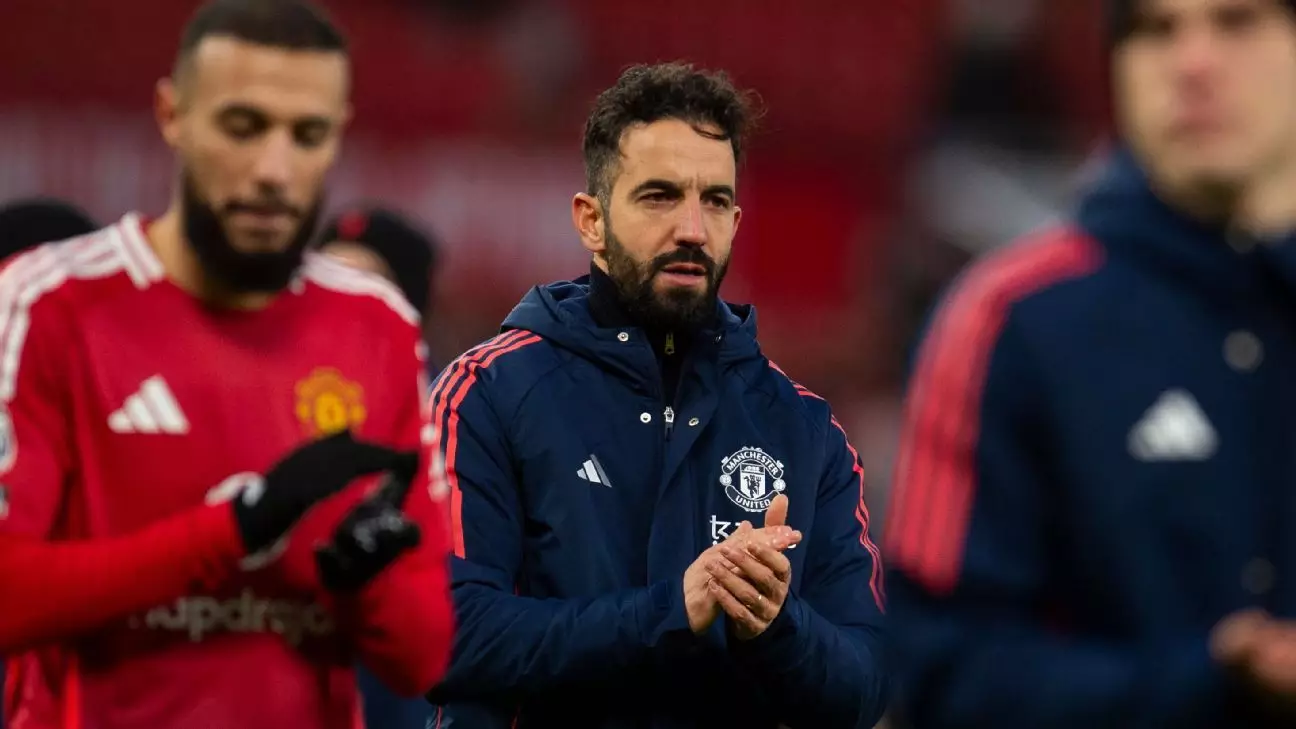In the storied landscape of English football, Manchester United has found themselves in a precarious position under coach Ruben Amorim. Despite having a resume that includes transformative periods at Sporting CP, where he boasted nearly 18 months of unbeaten home league performances, Amorim has faced a disconcerting turn of events at Old Trafford. Losing two out of three Premier League matches early in his tenure has led to mounting pressures and a looming sense of urgency—not just for him but for the entire club.
When Amorim took over, there was optimistic speculation around his capacity to lead Manchester United back to its former glory. However, each match has exacerbated the weight of expectations on his shoulders. From set-piece mishaps to failing to convert opportunities into goals, the team has struggled significantly. Their recent defeats, particularly the alarming 3-0 drubbing at home to AFC Bournemouth, have amplified scrutiny on both Amorim and his tactics. He recognized the atmosphere among players and supporters, stating, “Everyone is suffering in the stadium. The fans, the players, everybody,” reflecting a palpable anxiety that has become integral to the club’s experience.
A repeated theme exists within Manchester United’s recent performances: the inability to defend set-pieces. The statistics speak volumes—seventeen goals conceded from set-piece scenarios in the current calendar year alone underscore a critical gap in Amorim’s defensive strategy. This vulnerability was painfully evident during the clash with Bournemouth, echoing past performances where the team has seen swift collapses after conceding early. Amorim’s sentiment post-match about “losing because we create more chances” points to a larger dilemma: the failure to capitalize on those chances, which invariably leads to long-term frustration amongst players. This cycle of conceding first and failing to equalize has not only eroded morale but effectively altered the club’s approach to matches.
Sitting within the iconic stands of Old Trafford, the emotional landscape during games has shifted. Where once the stadium echoed with an unwavering belief in the team, now, with each misplaced pass or missed opportunity, jeers and boos resonate through the air. Conversely, the away fans reveled in their team’s performance, which only amplifies the home crowd’s disenchantment. Amorim’s acknowledgment of the need to rebuild a connection with supporters speaks volumes about the trust factor that is essential for long-term success. Winning back that faith might be as critical as altering game strategies.
Despite the grim statistics and the weight of external pressures, Amorim remains resolute in his capability to enact change. His focus on immediate suggestions for improvement indicates a sense of determination that is essential in high-stakes management. Facing teams like Wolverhampton Wanderers and Newcastle United will be crucial in redefining the season narrative. A swift turnaround could shift perceptions, but anything less than convincing performances will see him entrenched deeper into controversy, a fate he seems brazenly aware of. “We have to face it and prepare for the next game,” he stated, recognizing the urgency while setting the tone for a critical shift.
Examining this tumultuous period offers a wider reflection on the state of Manchester United as a whole. The beleaguered club not only wrestles with Amorim’s tactical adjustments but grapples with internal expectations that come with its prestigious history. Each defeat echoes a growing list of challenges that threaten to define his tenure prematurely. As he tries to navigate the complexities of coaching a titanic club with high stakes, Amorim must summon resilience, patience, and innovation to clear the clouds of uncertainty currently hovering over Old Trafford.
In a period where every game invites unrelenting scrutiny, Amorim stands at a pivotal crossroads. With decisive action and perhaps a sprinkle of luck, he has the chance to turn the storm surrounding Manchester United into an opportunity for resurgence. The path ahead is undoubtedly fraught with potential pitfalls, but fortifying his strategies and rebuilding his team’s confidence will be fundamental to weathering this challenging phase. Manchester United must rally not just as a team, but as a resilient entity that has historically thrived amidst adversity. The clock is ticking, and the storm is now.

